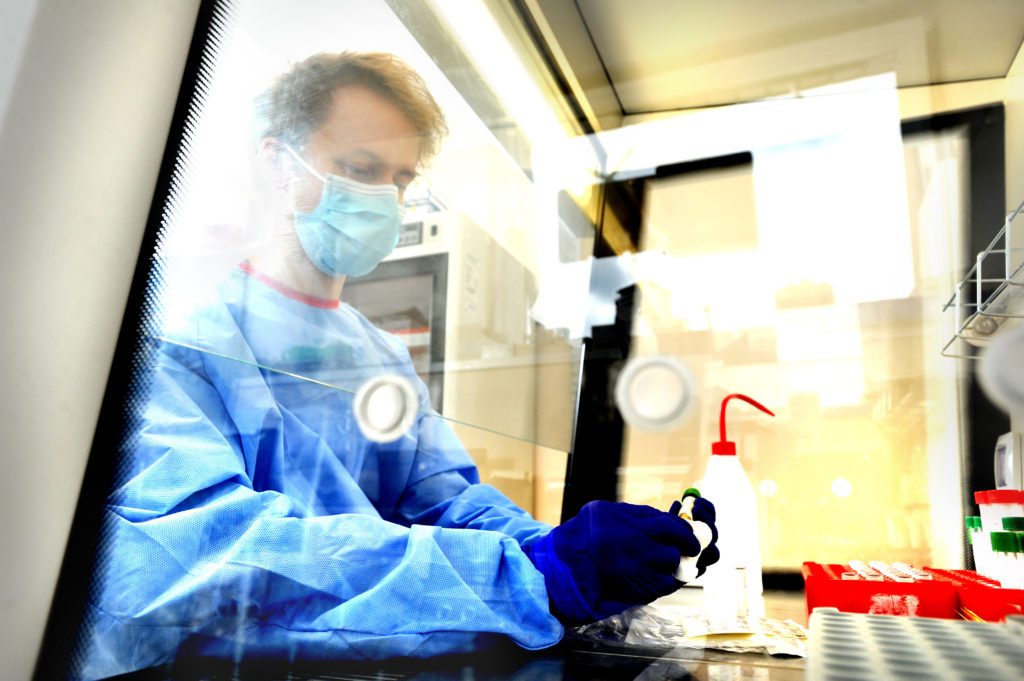Antibodies to COVID-19 fall by half in less than 90 days, and antibody levels peak lower and fall faster in younger adults, an ongoing study of staff at Oxford University Hospitals NHS Foundation Trust has revealed.

The findings, published on the pre-print server medRxiv, also showed that antibodies to the virus last longer in people who have had symptoms, and fade quicker in those who were asymptomatic.
The paper – ‘The duration, dynamics and determinants of SARS-CoV-2 antibody responses in individual healthcare workers – presents six months of data from a longitudinal seroprevalence study of 3,217 OUH healthcare workers who have attended more than once for antibody testing.
They were among some 10,000 staff across OUH’s four hospitals who have been tested both for presence of the virus responsible for COVID-19 and antibodies to the virus, to give an accurate picture of who among the OUH workforce had had coronavirus infection. The study is a major collaboration between OUH and the University of Oxford, with support from the NIHR Oxford Biomedical Research Centre.
By measuring antibody responses in the same healthcare workers for up to six months, the researchers could follow what happens to antibody levels over time and how this varied between different people.
In this cohort of working-age healthcare workers, antibody levels rose to a peak at 24 days after the first positive PCR test, before beginning to fall. Those tested had lost their positive antibody result after an average of 137 days.
The researchers observed variation between individuals: increasing age, Asian ethnicity and prior self-reported symptoms, for example, were independently associated with higher maximum antibody levels.
One of the authors on the paper, Professor David Eyre of the University of Oxford’s Nuffield Department of Population Health, said: “These findings could be significant: current studies that are using antibodies to assess how many people have been infected in a population might have missed some who have been infected, especially younger people and those infected early in the pandemic and with mild or asymptomatic infection.
“The longer-lived antibodies in older people of working age are intriguing and not completely explained. This is still a new disease and we are learning more and more about it all the time, but longitudinal studies like ours are needed to answer some of these important questions about how long and at what level antibodies last, and the extent to which they protect people from reinfection.”
OUH Chief Executive Dr Bruno Holthof said: “Since the outbreak of COVID-19, the Trust and the University have pooled their resources to develop highly reliable PCR and antibody testing to support the research and care in the fight against the virus.
“I would again like to thank all the people who work at our hospitals who have taken part in this long-term study, which will continue to reveal valuable information about this virus, which we are still learning about.”